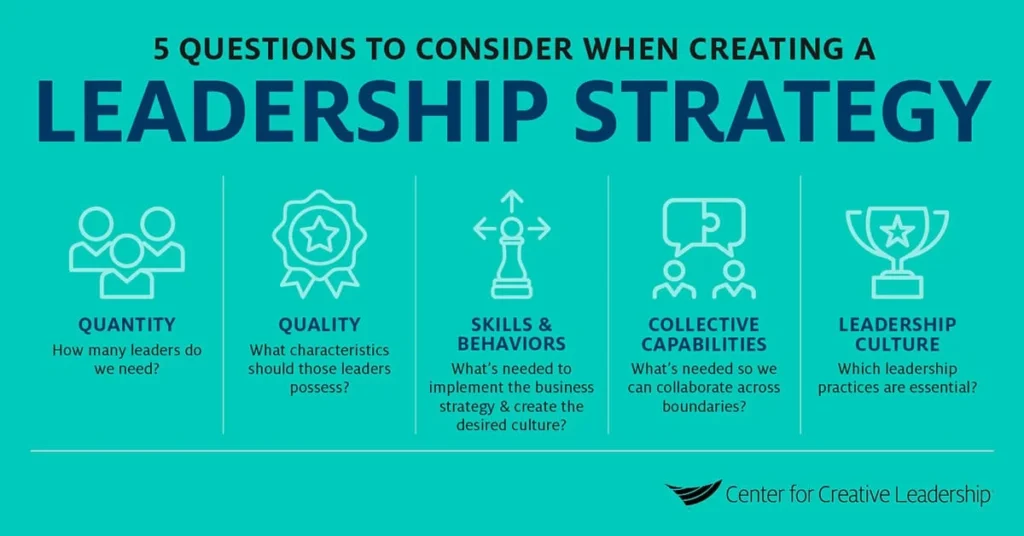Leadership and strategies in business are crucial components for the success of any organization. Effective leadership involves guiding and motivating employees to work towards the common goals of the company, while strategic planning encompasses the long-term vision and specific steps to achieve business objectives. A strong leader can inspire and empower a team to adapt to changes, innovate, and overcome challenges, while well-crafted strategies can position a business competitively in the market and drive sustainable growth. In today’s dynamic and competitive business environment, the combination of strong leadership and effective strategies is essential for achieving and maintaining success.
In the realm of business, the concept of leadership and strategies is also closely related to the notions of management and planning. Effective leadership involves not only guiding and motivating employees, but also making critical decisions and taking calculated risks to drive the business forward. Similarly, strategic planning encompasses not only setting long-term goals, but also analyzing market trends, identifying opportunities, and allocating resources efficiently. The ability to lead and strategize effectively can ultimately determine a company’s ability to adapt to changing market conditions and achieve sustainable growth.
Understanding Leadership in Business
Leadership in business refers to the ability of an individual or a group of individuals to influence and guide their team towards achieving the company’s goals and objectives. A successful leader is someone who can inspire, motivate, and empower their team members to perform at their best. They also need to have a clear vision for the company and be able to communicate this vision effectively to their team.
Effective leadership in business involves making strategic decisions, managing conflicts, and fostering a positive and productive work environment. It also requires the ability to adapt to changing circumstances, take calculated risks, and provide guidance and support to employees. Ultimately, good leadership is essential for the overall success and growth of a business.
Implementing Effective Leadership Strategies
Implementing effective leadership strategies involves identifying the strengths and weaknesses of the team members, and leveraging those strengths to achieve the company’s objectives. It also requires setting clear expectations, providing regular feedback, and creating opportunities for professional development and growth.
Furthermore, effective leadership strategies involve promoting a culture of collaboration, innovation, and accountability within the organization. This can be achieved through open communication, fostering a sense of ownership among employees, and leading by example. By implementing these strategies, leaders can create a cohesive and high-performing team.
Building a Strong Team
Building a strong team involves hiring the right individuals with the necessary skills, experience, and cultural fit for the organization. It also requires creating a supportive and inclusive work environment where team members feel valued, respected, and motivated to contribute their best.
Additionally, building a strong team involves fostering strong communication and collaboration among team members. This can be achieved through team-building activities, regular team meetings, and creating opportunities for cross-functional collaboration. A strong team is crucial for the success of any business, as it can drive innovation, productivity, and overall business performance.
Adapting to Change
Adapting to change is a crucial aspect of leadership in business, especially in today’s fast-paced and constantly evolving market. It requires leaders to be flexible, open-minded, and proactive in identifying and addressing challenges and opportunities that arise.
Effective leaders need to be able to anticipate change, communicate the need for change to their team, and guide them through the transition process. This may involve restructuring processes, implementing new technologies, or adjusting business strategies to stay ahead of the competition. Adapting to change is essential for business growth and sustainability.
Strategic Decision-Making
Strategic decision-making is a key responsibility of business leaders, as it directly impacts the direction and success of the company. It involves analyzing data, assessing risks, and considering long-term implications before making important business decisions.
Effective leaders also need to involve key stakeholders in the decision-making process, seek diverse perspectives, and consider the potential impact on the organization, employees, and customers. By making well-informed strategic decisions, leaders can steer the company towards growth and success.
Leading by Example
Leading by example is a fundamental aspect of effective leadership in business. It involves demonstrating the values, work ethic, and behavior that is expected from the team members. This can include being transparent, ethical, and accountable in all business dealings.
By leading by example, leaders can earn the trust and respect of their team, and create a positive and productive work culture. It also sets a standard for excellence and professionalism within the organization, inspiring employees to uphold the same values and work ethic.
Empowering and Motivating Employees
Empowering and motivating employees is essential for creating a high-performing team and driving business success. This involves delegating responsibilities, providing autonomy, and recognizing and rewarding employees for their contributions and achievements.
Effective leaders also need to understand the individual motivations and aspirations of their team members, and provide opportunities for growth and development. By empowering and motivating employees, leaders can foster a culture of innovation, initiative, and high performance within the organization.
Creating a Vision for the Future
Creating a vision for the future is a crucial leadership responsibility, as it provides a sense of purpose and direction for the organization. A clear and compelling vision can inspire and align the efforts of the team towards achieving common goals and objectives.
Effective leaders need to communicate the vision effectively, rally the support of their team, and continuously reinforce the vision through their actions and decisions. By creating a shared vision for the future, leaders can guide the organization towards long-term success and sustainability.
| Leadership | Strategies |
|---|---|
| Effective leadership is essential for the success of any business. It involves setting a clear vision, motivating and inspiring employees, and making tough decisions. | Business strategies involve the long-term planning and action plans implemented by a company to achieve its goals. These can include marketing strategies, financial strategies, and operational strategies. |

